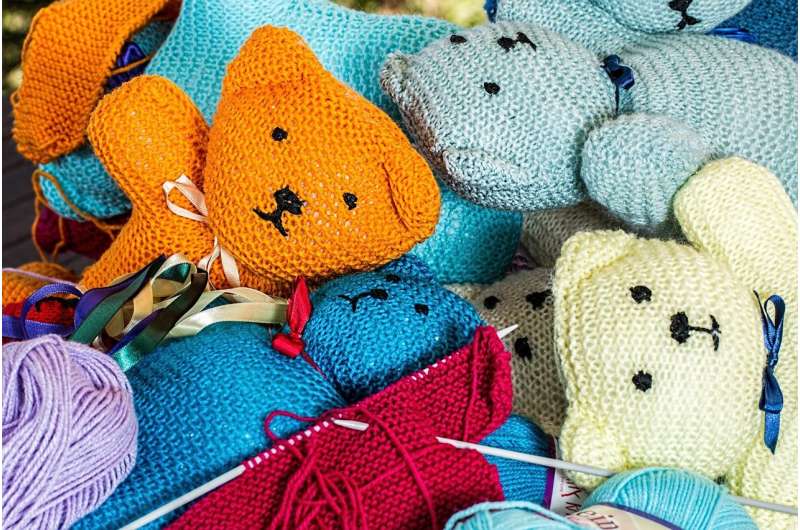This article has been reviewed according to Science X's editorial process and policies. Editors have highlighted the following attributes while ensuring the content's credibility:
fact-checked
peer-reviewed publication
trusted source
proofread
Brands that exude warmth hit the mark with lonely consumers, study shows

In a study that gives new meaning to retail therapy, University of Alberta marketing researchers have found that consumers who feel lonely will often turn to brands that exude warmth.
"We found that excluded or lonely people tend to choose warmer brands, because they think these brands will be better relationship partners," says study co-author Kyle Murray, Stanley A. Milner Professor and dean of the Alberta School of Business.
"The compensation they get from a brand is powerful," he adds, providing a degree of comfort and "making up for missing human relationships."
In the study, published in Psychology and Marketing, Murray and co-authors Soyoung Kim and Sarah Moore note that 40 percent of respondents to a 2018 U.S. survey reported feeling isolated some or all of the time and that their relationships were not meaningful.
That same year, the British government created a new ministry of loneliness to tackle a growing social epidemic with harmful health consequences for lonely individuals equal to smoking 15 cigarettes a day.
Before COVID-19, one in five Canadian adults reported some degree of loneliness or social isolation. That figure has been rising steadily since the pandemic began, say the study's authors.
A better brand partner?
To examine the relationship between social exclusion and branding, researchers began by having 130 undergraduate students play a ball-toss video game called Cyberball, which is often used to study ostracism and exclusion. Participants believed they were playing with two or three team members; in fact, those teammates were controlled by the programmer.
One group of participants were never thrown the ball, a condition meant to elicit feelings of exclusion. A second group received passes and therefore were more likely to feel included in the game.
As they left, all participants were offered a choice between two gift bags of appreciation: one with a Tide laundry detergent logo, the other labeled with the cuddly bear of Snuggle detergent.
"The people who were excluded in the game tended to choose the bag with the Snuggle bear," says Murray. "They felt the Snuggle bear would be a better laundry detergent partner."
"Once we saw that, we thought, 'Let's dig into this a little further.'"
The research team continued with four other experiments involving hundreds of participants in varying scenarios. Some wrote about their life experiences with social exclusion and consumer behavior; others responded to their impressions of fictitious "warm" and "cold" clothing brands.
"Across five studies, our findings suggest that socially excluded consumers prefer warm over less-warm brands," says Murray.
The research even suggests that warm brands help people feel less lonely, he adds.
The Snuggle is real
The authors also found self-acceptance played a role in brand preference.
Among those who felt included, the choice between Tide and Snuggle depended on how comfortable they felt about themselves. Those who reported high self-acceptance opted more often for Tide, whereas those with low self-acceptance went for Snuggle.
Among the excluded group, self-acceptance made little difference to their choice. Nor did they change their minds when told Snuggle may not clean as well as Tide, they continued to prefer the warmer, fuzzier brand.
According to Murray, the study's results offer important lessons for companies designing brands.
"If you can be a warmer, more caring brand, you can actually make people feel better, and that will make them better customers," he says. "They're more likely to be loyal and more likely to choose you."
"If you're a colder brand and this trend in increased loneliness continues, you're going to struggle."
More information: Soyoung Kim et al, Some like it warm: How warm brands mitigate the negative effects of social exclusion, Psychology and Marketing (2023). DOI: 10.1002/mar.21786
Journal information: Psychology and Marketing
Provided by University of Alberta




















